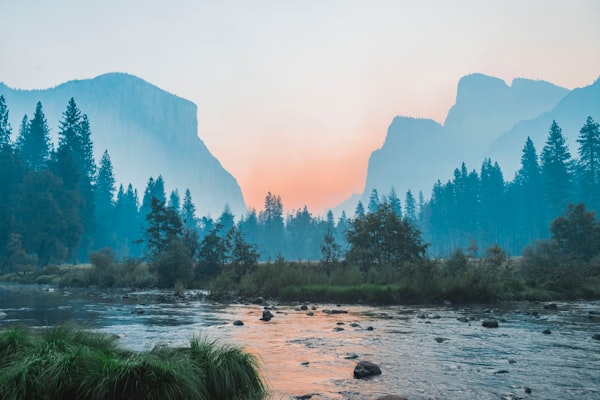“Every Billionaire is a Policy Failure”

”I know it can sound flippant, but they really embody this notion that every billionaire is a policy failure".
This was from a piece about Yvon Chouinard and his family, who just placed Patagonia into a special trust, so that it cannot be turned into a publicly traded company. The kids didn’t want it, and Chouinard felt uncomfortable being seen as a billionaire.
Apparently, the phrase came from one of @AOC’s team.
"Every Billionaire is a Policy Failure" - that's the Twitter tagline of @DanRiffle, one of the many brilliant policy people behind @AOC's campaign. Captures it all in a nutshell, doesn't it? Definitely someone worth following.
— Jason Hickel (@jasonhickel) February 12, 2019
It was read by my two guys on the podcast Too Beautiful to Live, which is my Monday through Friday friend gang. They are self-effacing and say they are not very eloquent and not qualified to speak about such things, but I thought their way of putting it made so much sense. I’ve been thinking about various parts of what they said all week.
Luke Burbank: Right? Like I'm pretty capitalistic. I'm definitely you know, probably more hung up on trying to earn money, etc. than you are, I think and then I should be like, it's not a great look for me. But I think I stand I think I agree with this notion that we don't we shouldn't have billionaires. That's a policy failure. Like imagine you looked at an ant colony, or like a, you know, an anthill, and they're cutting leaves and they're carrying them on their backs like they do and all that and just like four ants had all the leaves and then there's 3000 other ants and they are sharing one leaf section between them. You'd go "what is wrong with these ants?" And like that's the world basically, you know, like billionaires. That's that's a policy failure.
Andrew Walsh: Yeah, I don't want to get out over my skis here because I'm the least articulate person on these topics. But I will say that it's interesting if you go back to earlier episodes of TBTL like a long time ago ... I always cringe thinking about it. I remember just always saying like, “I just believe in the free market.” Because the way it was taught to me, I did believe in the free market. I believe in market forces and I believe in competition, and I believe in competition breeding excellence. And there's some truth to those aspects of it, but to just blatantly say a blanket statement like “I believe in the free market”, you're ignoring so many things in the fact that power and money beget power and money and the people who are accumulating all this wealth. It's not just from competition and excellence and hard work. It's like once you have that power, then you use that power to not put back into society, right?
And that's how you have situations where Amazon will come into a city like ours [Seattle], and people will say, “Oh, great! Jobs.” Yeah, what they do, they attracted a bunch of very high level jobs for a very specific part of the population, that has a certain type of education, that then the people don't have that education are poorer and poorer.
And of course the Bay Area where I live is the very same way, but has just been in that situation for longer.
And I mean yeah, on paper the idea that somebody should be able to work hard and become a millionaire or even a billionaire, okay, great. That sounds like freedom. Right? But no, there's so much more involved in that that is just overlooked, when you just look at it so simplistically, like I did for years and years. I just really feel like a billion dollars is more money than somebody needs. Like, that's why that that way of describing it as “a billionaire is a policy failure” really struck me, because it is a policy failure.
It just shouldn't be the case that someone can accumulate more money than they can ever spend in 10 lifetimes, while there are so many people that are going without the most basic needs being met. Like that's just a fucked up ant colony to live in.
You could have $500 million, you could have half a billion dollars you could have two Russell Wilson salaries. It doesn't mean that like people can’t still be super wealthy, but it just seems like there is an amount of money that is ludicrous, when you think about the suffering in the world.
Now, the counter-arguments start... Who are you to say that so-and-so shouldn’t have their money, power, etc.? Are espousing a political structure in which people’s wealth is taken by force, etc.?
But this keeps us locked into the same argument we’ve been in for decades. I am old enough to remember the Cold War, and the way the world became bifurcated into Capitalism versus Communism, so that you were either for System A or System B, and the more you railed against System A, the more people would go “well what would you suggest — System B?” As though A and B were the only ways to think about things.
When the truth is, we are all collectively deciding to treat each other in certain ways, and these accumulate into cultures and institutions that span the globe. It’s all agreements. Now, of course all of this is mediated by our basic tribal natures , biochemical processes, etc., and that is all very important. And yet, to presume, therefore, a particular set of constraints that happen to match the way our cultures do things, is just as naive as to presume that culture is not important. Nope, we just have to reexamine things at a deeper, more fundamental level.
But that is why the ant colony metaphor is so good. Because it lets you see the embarrassing absurdity of the moment we are living in. And it is increasing all the time, you see. The other day on the 21st anniversary of 9/11, some younger folks were asking what it was like before 9/11, and I think the wistful implication was that things felt calmer, safer, and more stable, and if only they had been able to experience that.
Well they did feel calmer, safer and so on, and it was nice not to have to take your shoes off for the TSA. But when I looked back, I didn’t feel like that was the real watershed moment at all. I don’t think there was a watershed moment, in fact; I think there was a drip, drip, drip of increasing economic inequity. Kids, that is what I have seen.
I remember the radicals shouting about it in 1980, when Ronald Reagan was elected. On KPFA radio as a teenager, on and on: “The rich are just going to get richer, and the poor are going to get poorer. Mark my words.” And some years ago, I said to myself: “by golly, there were spot on.” Time proved them right.

Kids, here’s what really changed. We did not have people living in tents on the streets everywhere.
We did not have people living in tents on the streets everywhere.
We did not have people living in tents on the streets everywhere.
Can you really get this? This is the fraying, the collapsing. The Great Resignation. The stark rise in unionization. The disaffection and jump in suicide rates among Gen Z. What the fuck kind of world are we leaving them? Sorry, but we just must do better.
Things are pushing at the edges everywhere, and consumerism doesn’t really know how to handle it. I guess that is why everyone freaks out about inflation, because as long as people can maintain their precarious balance of enough grocery money, rent money and so on... we can individually keep it together. Go up the scale a bit and it’s your vacation money, your kid’s education and so on. There is this precarious balance where — at all these economic levels — almost all our attention is kept alive on holding it together, and the force rattles forward. In The Four Disciplines of Execution, the authors researched big companies to see why it was so hard for them to change. It turned out it was nothing more complicated than what they called the whirlwind of having to maintain all the stuff that kept the current situation from falling apart.
So somehow — oddly — survival has become, in a consumerist culture, a thing that keeps our attention fixed, even as we have gone far past our actual survival needs for lots of people. I noted years ago, that in a consumerist culture when we have more money, we tend to spend it on more elevated versions of basic survival needs. We need food to live, so when we have more to spend we buy fancier food. We need shelter to live, so when we have more to spend we buy fancier housing. We could have bought other things (such as time to think about our choices), but we do not.
There is an attention-fixing quality to the way we continue to re-structure everything around things we can buy. The suburbs are incredibly lonely, but we can buy entertainment to distract ourselves from that, or fancier foods and so on. Our work days are incredibly long, but we can placate ourselves, etc.
And I think we do not realize how much we are simply playing status games, with rules to make ourselves feel that we belong. At all costs, we must belong. So the whirlwind is created almost entirely by us. But we don’t live individual lives, we live collective lives, so we would need to invent new games together, I suppose, to help us out of this consumerist trap.
But for those of us who are winning, we are not happy about the winning anymore. I grew up in Berkeley, California. At the time there was the occasional homeless person, but we could all feel like living there was a choice. (I ignored the levels of privilege I did have, by the way.) But now, Berkeley is a place of great privilege, and many of us have left. The consumerist vision promised that everyone could work hard and get something good, but now you’d have to be tap dancing in a particular fantasy world to feel that way, and it makes one uncomfortable, even when one has it. The capitalist theater promised that I could feel good about my station and my hard work, because I was surrounded by others with a variety of backgrounds and everyone seemed to be doing fine. Sure, it obscured other levels, but now you cannot even avoid it as you walk to the store, and this means that the theatre is showing signs of serious corrosion.
I have a friend who grew up in Berkeley as well, and through lots of hard work for the right kinds of people (and their partner doing lots more work for the right kinds of people), they just moved back to Berkeley, and purchased a house for about $2.4 million. I am happy for them that they get to have that beautiful house. But they shared the same feeling I have: “I don’t really want to live in a Berkeley where only ‘rich’ people like me can afford a house. I miss the Berkeley we grew up in, where regular people could live and share time together, and just be human with each other.” Those were not the exact words, but they were the sentiments.
If I had all the money in the world, I would not want to live in a world where I had all the money in the world, and there were people living in tents. Who wants that world?
But if we can just keep returning to the ethic of personal achievement and choice, we are absolved of responsibility for how our decisions affect others. And as the most individualistic country on Earth, how can we not couch every single decision; every single possibility; every single issue, in terms of the personal choices of atomized individuals?
Never mind that we are wholly dependent on a natural world that supplies us with the vast majority of wealth that it pretends to “own”. Never mind that we dependent on geo-arbitrage (outsourcing) to serf states where choices are fewer, to prop up our sense of abundance. We are propping it up on the backs of those people. On the back of nature. And it is all propped up further by the myths of the middle class that they will one day become rich. Fantasies of wild success in the future became our version of Heaven were the consolation for workers in the past.
And then at the top levels, they can console themselves that there must be something good about the system, because it is shining goodness on them, and they are good people, giving to charity and trying to make the world a better place, etc.
But meanwhile, something is becoming more broken all the time, and we are not sure why.
I guess this is more of a polemic in the sense that I don’t have solutions, except that there does begin to suggest a framework for thinking about the problems, and how we are caught in them. Of ways to pull apart the various constituent parts and start to look at them anew.
The ant colony metaphor is a good place to start. “This just does not feel right” is a fine place to start. We have lost so much by not following our feelings, our gut, our instinct that something is just not right here. It is so important that we all start to do so. Now.
There was always the subtle fear that if I were to speak of such things publicly, this might damage my career, my chances, my options. Don’t be so negative, Chris. It is only the dimmest shadow of what someone in China might have to deal with, or Russia. But I do feel it. There is social pressure to conform, for fear of breaking an unwritten compact that we not complain too harshly, lest we be labeled a Communist or something or other. But this is, of course, ridiculous. Anyone who is still stuck in an old definition like that is just being silly and wasting our time. Those are thought forms that no longer serve us, and we have to break apart our considerations into their constituent parts, and reassemble them in a helpful fashion, according to what makes sense for us now, and without being burdened by the past. Because that is all just silly.
And my own work to foster a healthy form of small business prosperity I find completely in keeping with all of these ideas. I want to empower normal people who want to make good things, to understand how the mechanisms of business work to build things that are beautiful and healthy, and empower resilience and creativity. So that regular people can make things they care about, and spread the meme of people making things they care about. And have good, happy lives, and a healthy, well-balanced sense of what abundance can truly look like, in ways that have a chance of being sustainable for a planet, as opposed to relying on geo- and eco-arbitrage to sustain an illusion just a little longer. Because, to quote Obama: “we do not have time for this kind of silliness.”
I do still feel this odd sensation of “thou shalt not question capitalism” or the free market. But. It. Is. Fraying.
Shall we begin to create into The More Beautiful World Our Hearts Know is Possible, or do you want to wallow in despair or delusion? I think those are our three choices.





